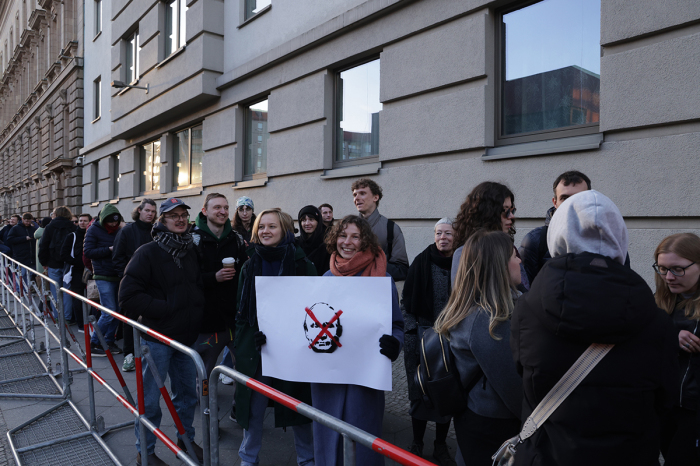Thousands of Russians joined protest against Putin who secured 5th term as Russia's president

Thousands of Russians have taken to the streets in protest against President Vladimir Putin, who has clinched a fifth term as Russia’s president, amid allegations of electoral manipulation and the absence of genuine opposition. The election, resulting in an 88% win for Putin, has been marred by controversy, with claims of vote rigging and suppression of dissent.
In the wake of the election, Putin, addressing supporters at United Russia’s headquarters, celebrated the victory on Sunday, claiming the results to be a manifestation of the Russian people’s united will, The Telegraph reported.
Putin extolled the efforts of Russian forces in Ukraine, framing his win as a collective triumph.
“No matter how hard they tried to scare us, suppress our will, our conscience, no-one has ever succeeded in history. They failed now, and they will fail in the future,” the BBC quoted the Kremlin leader as saying.
However, the election’s credibility was immediately questioned, with critics pointing to the lack of competition and the alleged coercion of voters.
Yulia Navalnaya, the widow of Alexei Navalny, who died under suspicious circumstances in a Russian prison, emerged as a symbolic figure in the opposition movement. She urged Russians to demonstrate their discontent at polling stations, leading to widespread participation in flash mob protests across the country and at Russian embassies globally. The protests, marked by queues of dissenting voters and defaced ballots bearing anti-war and pro-Ukraine messages, underscored the deep-seated opposition to Putin’s regime.
The election’s integrity was further compromised by reports of vote manipulation, including pressure on state employees to support Putin and tampering with electronic voting results. Independent observers like Golos have dismissed the election as fraudulent, citing instances of bribery and data falsification, according to the Telegraph.
In some regions, notably the Donbas area of Ukraine, Putin’s vote tally reportedly reached 95%, a figure met with skepticism by international observers.
“The action has achieved its goals,” Radio Free Asia quoted Ivan Zhdanov, the head the Anti-Corruption Foundation formerly headed by Navalny, as saying in a YouTube video. “The action has shown that there is another Russia, there are people who stand against Putin.”
International reactions to the election were swift and critical.
The U.K.’s Foreign Secretary and the White House dismissed the election as neither free nor fair, highlighting the illegal voting in occupied Ukrainian territories and the suppression of political opposition.
Ukrainian President Volodymyr Zelensky condemned the election as a sham, calling for Putin to face justice at The Hague.
Despite the Kremlin’s efforts to project unity and strength, the election has exposed significant rifts within Russian society.
The “Noon Against Putin” protests, a grassroots initiative, demonstrated the resilience of the opposition, with participants across Russia and abroad making a stand against Putin’s rule. These protests, coupled with the detention of demonstrators and acts of defiance at polling stations, have revealed a populace that is far from unanimously supportive of Putin’s prolonged leadership.
Putin’s tenure, now extended to nearly three decades, positions him as one of Russia’s longest-serving leaders, surpassing even Soviet-era figures in terms of longevity in power. This election, ostensibly a referendum on Putin’s leadership, particularly his aggressive stance on Ukraine, has instead highlighted the authoritarian underpinnings of his regime.





























